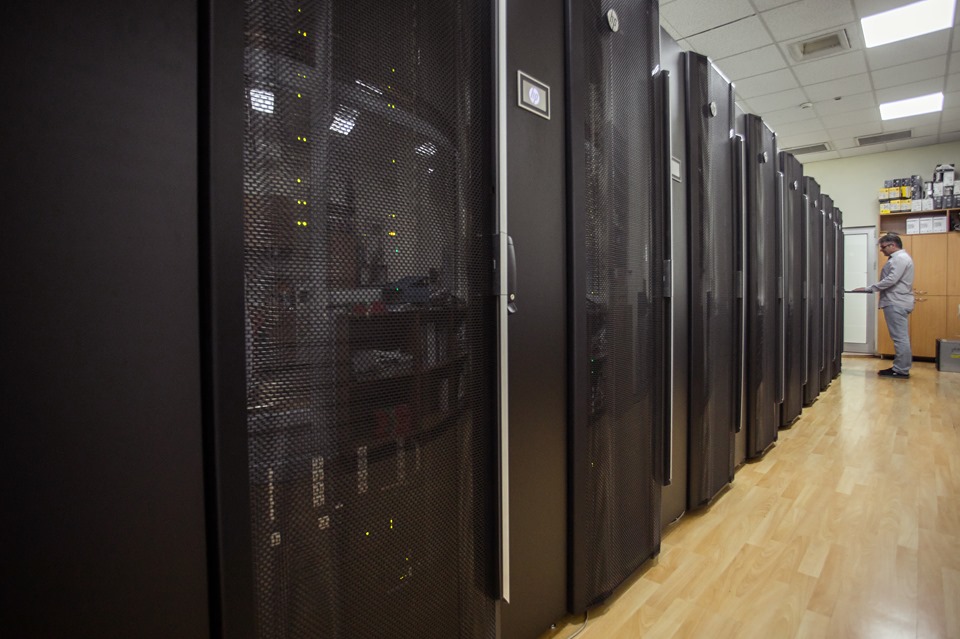
A group of researchers from the Institute of Physics, Belgrade participates in one of 12 projects in the field of artificial intelligence which, among 70 submitted proposals, have been approved for funding by the Science Fund of the Republic of Serbia. To be specific, in July 2020, after a lengthy procedure, the Fund announced the final list of the project proposals which are to be funded under the Program for Development of Projects in the Field of Artificial Intelligence. The project ATLAS, which brings together researchers from the Institute of Physics, Belgrade and their colleagues from Singidunum University, found itself among the approved.
The ATLAS project, which is an acronym for the full name Artificial Intelligence Theoretical Foundations for Advanced Spatio-Temporal Modeling of Data and Processes, encompasses both theoretical research in this dynamic discipline as well as its application, primarily in the field of environmental protection. The project leader is Prof. Dr Endre Pap from Singidunum University, while Dr Andreja Stojić leads the Institute’s team which also includes Dr Dimitrije Maletić, Dr Dušan Vudragović, Dr Gordana Jovanović, Dr Mirjana Perišić, Dr Marija Mitrović Dankulov and Ana Vranić.
The Program for Development of Projects in the Field of Artificial Intelligence is the second major call of the Science Fund, following the PROMIS program under which the researchers of the Institute of Physics managed to win as many as four projects. In addition to a fierce competition, the participation in the program dedicated to artificial intelligence was more challenging to the researchers of the Institute due to an unusual, formal requirement that the titles of published scientific publications have to include ’artificial intelligence’ phrase verbatim.
Nevertheless, similar to other world research centres in physics and other related fields, the Institute of Physics, Belgrade encourages research in the field of artificial intelligence too, particularly in the area of machine learning, having infrastructural and human capacities. As the ATLAS team states, such research, being multidisciplinary in its essence, nowadays is carried out through cooperation with other research organizations. It was this that led to the project launching, which was the result of a long and productive cooperation between the Institute and Singidunum University in this field.
In the words of the ATLAS team member, Dr Andreja Stojić of the Institute of Physics, the project is expected ’to put heavens on its back leading the science beyond the existing horizons’, alluding to the eponymous Greek Titan. The basic idea of the project is based on the very question how and in which volume artificial intelligence can contribute to the transformation of the knowledge horizon.
A special focus is on the environmental issues, which represent a very complex system, claims Dr Stojić, while the data quality, its analysis and interpretation, as well as the lack of understanding of the connection between various factors of this system are problems and challenges. The role of artificial intelligence in the fields which are continually being enriched by data will grow ever larger, and Dr Stojić explains that the environmental data have become Big Data a long time ago, but they have never been treated as such.
The task of the ATLAS project is to strengthen the capacity to collect, analyze and interpret publicly available data, and then to offer a ground for future planning and policymaking. As the Institute’s team members state, there are three main goals of this project: development of new theoretical artificial intelligence foundations, development of publicly available web-platform which can be employed in research in various fields and validation of developed methods by means of the air quality analysis on the global level.
The researchers of the Institute of Physics, Belgrade shall participate in each project phase, i.e. in the development of methods, validation and ATLAS platform development. The researchers from Singidunum University shall conduct the development of methods while the Institute’s team is to interpret the results in the field of air pollution and validation. The platform, whose development shall be carried out by both teams, will be implemented on the supercomputer Paradox (shown in the photo), an installation at the Centre for the Study of Complex Systems at the Institute of Physics, Belgrade.
There were six projects in basic research (including the ATLAS project) and six projects in applied research approved within the Program for the Development of Projects in the Field of Artificial Intelligence of the Science Fund. The funds were allocated to the teams from Belgrade, Novi Sad, Niš and Kragujevac.
Final ranking list of the Program for the Development of Projects in the Field of Artificial Intelligence
Photo: Bojan Džodan – the Centre for the Study of Complex Systems at the IPB




